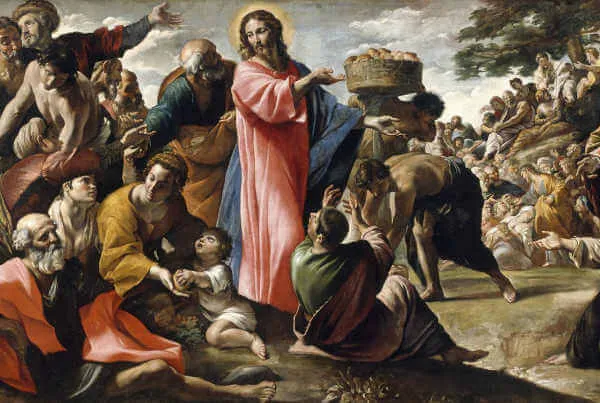Matthew 16:22-23
Facing Fear with Hope
Then Peter took Jesus aside and began to rebuke him, “God forbid, Lord! No such thing shall ever happen to you.” He turned and said to Peter, “Get behind me, Satan! You are an obstacle to me. You are thinking not as God does, but as human beings do.”
Reflection:
What a shocking statement this must have been that was spoken by Jesus to Peter. “Get behind me, Satan!” Jesus said. In the paragraph before this, Peter professed that Jesus was “the Christ, the Son of the living God.” Jesus in turn told Peter that he was Petros and on this petra He would build His Church. Petros is the Greek word for a movable rock and petra was an immovable solid rock foundation. Thus, Peter was told that he would be the stone, set upon a solid foundation, by which Jesus would build His Church. Jesus even went on to promise Peter that he would receive the keys to the Kingdom and that whatever he bound on earth would be bound in Heaven. And then, one paragraph later, Jesus rebukes Peter for thinking “not as God” but as a human being.
Jesus rebuked Peter because Peter could not accept Jesus’ teaching about His coming passion and death. Jesus told Peter and the other disciples that He would soon suffer greatly, be rejected by the chief priest, the scribes and the elders, be killed and then rise on the third day. So Peter went from a profound proclamation of faith, to fear and a rejection of the divine plan of salvation. And for that reason, Jesus went from entrusting much authority to Peter to rebuking him for his weakness and fear.
Fear is often a paralyzing passion. Saint Thomas Aquinas explains that the passion of fear comes from a perceived future evil. Sorrow is the normal reaction to a present suffering such as the death of a loved one. But when the perceived suffering, or apparent evil, is something that has not yet come, then we often react with fear. When that fear is caused by something exterior and out of our control, it tempts us to feel shock, a sense of being overwhelmed and anxiety. In the case of Peter, the thought of Jesus suffering greatly, and being killed, was more than he was able to accept. So Peter says, “God forbid, Lord! No such thing shall ever happen to you.”
Jesus’ rebuke of Peter was an act of true love. It was a way of shaking him free from the paralysis of fear. Jesus wanted Peter to think clearly and to face this future suffering with courage, acceptance, hope and faith. Courage provides strength. Acceptance cures anxiety. Hope produces joy. And faith is the remedy for all fear. These and other similar virtues were necessary if Peter and the other disciples were going to be able to endure the suffering and passion of Jesus. They needed to know that this perceived evil was going to be transformed by the Father in Heaven and used for the greatest good the world had ever known. They needed to know that Jesus “must go to Jerusalem and suffer greatly…” It was the Father’s will. And because it was the Father’s will, the greatest good would come from the greatest evil because of God’s almighty power.
Reflect, today, upon that which causes you the most fear and anxiety in your life. When you look to the future, what is it that paralyzes you or at least tempts you to fear and worry? The truth is that any evil or suffering that you foresee has the potential to bring forth the greatest good in your life. Your natural human mind cannot discern this. We must strive to think as God, not as humans, as Jesus says. Try to look at anything that causes you anxiety through the eyes of God alone. Trust that, in faith, all can be used by God for good. Do not doubt but believe and God will begin to bestow upon you the many virtues you need to move forward with peace, courage and confidence.
Source: https://catholic-daily-reflections.com/2024/08/07/facing-fear-with-hope-2/













